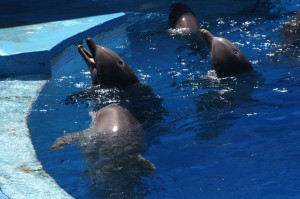 ENDCAP welcomes the news that Croatia has now prohibited the keeping of whales and dolphins in captivity for commercial purposes, which includes public facilities such as dolphinaria and aquaria.
ENDCAP welcomes the news that Croatia has now prohibited the keeping of whales and dolphins in captivity for commercial purposes, which includes public facilities such as dolphinaria and aquaria.
The decision was made following a study by the State Institute for Nature Protection, which recognised the adverse effects of dolphinaria and captivity on these wild animal species. The only exemption to the rule is for the rehabilitation and return to their natural environment of sick or injured animals.
The regulation was adopted to meet the provisions of the ACCOBAMS Resolution 3.13. on Dolphin Interaction Programmes, adopted at the Third Meetings of the ACCOBAMS Parties in Dubrovnik in 2007. The Resolution notes the ongoing proliferation of dolphinaria in the Agreement area and requests Parties to take action to address it.
There are believed to be 60 captive dolphin facilities in Europe that, together, keep and display at least 250 dolphins to the public. High mortality rates and low breeding success, however, means the captive dolphin industry remains unsustainable and wild dolphins are still captured to maintain numbers and stock newly constructed facilities. The last dolphinaria in the UK was closed in 1993 and as yet, no company has been able to meet our stipulated standards. Born Free is working to keep the UK a captive dolphin-free zone. Sign our petition and show your support for a captive dolphin-free Europe.
ENDCAP acknowledges the work by the Whale and Dolphin Conservation Society (WDCS) in providing the Croatian State Institute for Nature Protection with valuable information.
More about dolphinaria
02Jul2009
Next »

